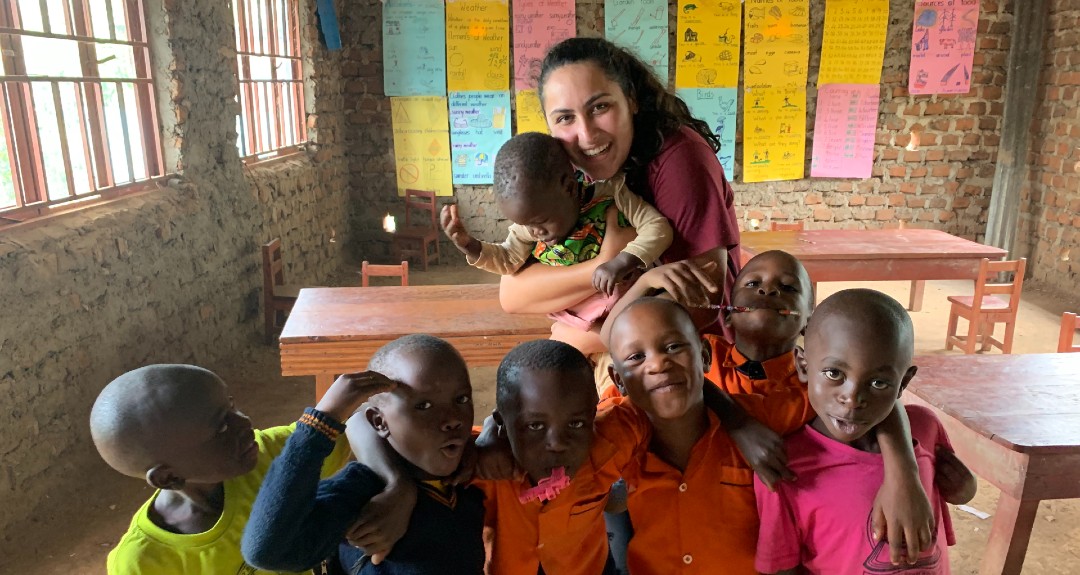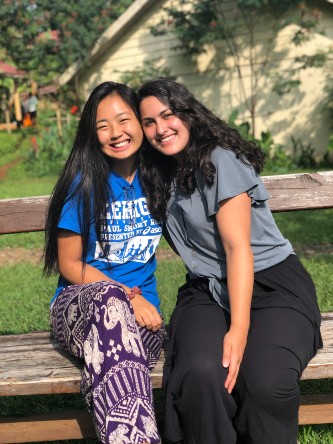High poverty rates and cost mean education beyond the elementary level is out of reach for many students in Uganda, so Chae Eun Kim ’22 and Jessica Galarza ’22 knew they wanted to focus on expanding access to learning after a visit to the country with Lehigh in 2019.
Their idea for a tutoring center for kids participating in a sports clinic at the nonprofit Pathways Development Initiative (PDI) in Uganda’s Bududa District became even more urgent when schools across the sub-Saharan African country shut down in March 2020 because of the pandemic.
Kim and Galarza were able to implement their plan this summer after receiving a $10,000 Davis Projects for Peace grant, one of three Davis grants recently awarded to Lehigh students. The money allowed them to purchase reading and writing materials, pens, pencils, tables and chairs, a desktop computer and a television for the tutoring center.
“Most schools have been closed and having a tutoring center has been so instrumental for the kids to have space to learn,” said Dezi Natala Zaale, founder of the sports clinic at PDI. “The equipment that has been purchased like the books, TV, chairs and tables also has created more desire to be part of the program.”
The purpose of the Davis Projects for Peace grants, named after the late Kathryn W. Davis, an accomplished internationalist and philanthropist, are to allow students to create grassroots projects that contribute to world peace.
The two other groups of Lehigh students who received $10,000 grants have yet to complete their projects because of pandemic travel restrictions. Those projects are to design a diagnostic test for sickle cell anemia to be used in low- and middle-income countries, and to develop a culturally appropriate and freely available screening tool for autism in Africa.
Organizing a Tutoring Center 7,000 Miles Away
Kim and Galarza were able to organize the tutoring center remotely this past summer because of connections they made during a 2019 visit to PDI with Sociology Professor Kelly Austin, a trip made possible through Lehigh by a variety of sources, including the Iacocca International Internship Program, a Strohl Undergraduate Research grant and Lehigh’s global studies program.
Since 2014, Austin has taken 45 students to Uganda, many of them returning for repeat visits.
“For students, it’s an experience that is so transformative,” Austin said. “It’s so important to remind them that we have a unique experience living in a country where you can just turn on the faucet to have running water, or flick a switch for electricity.”






